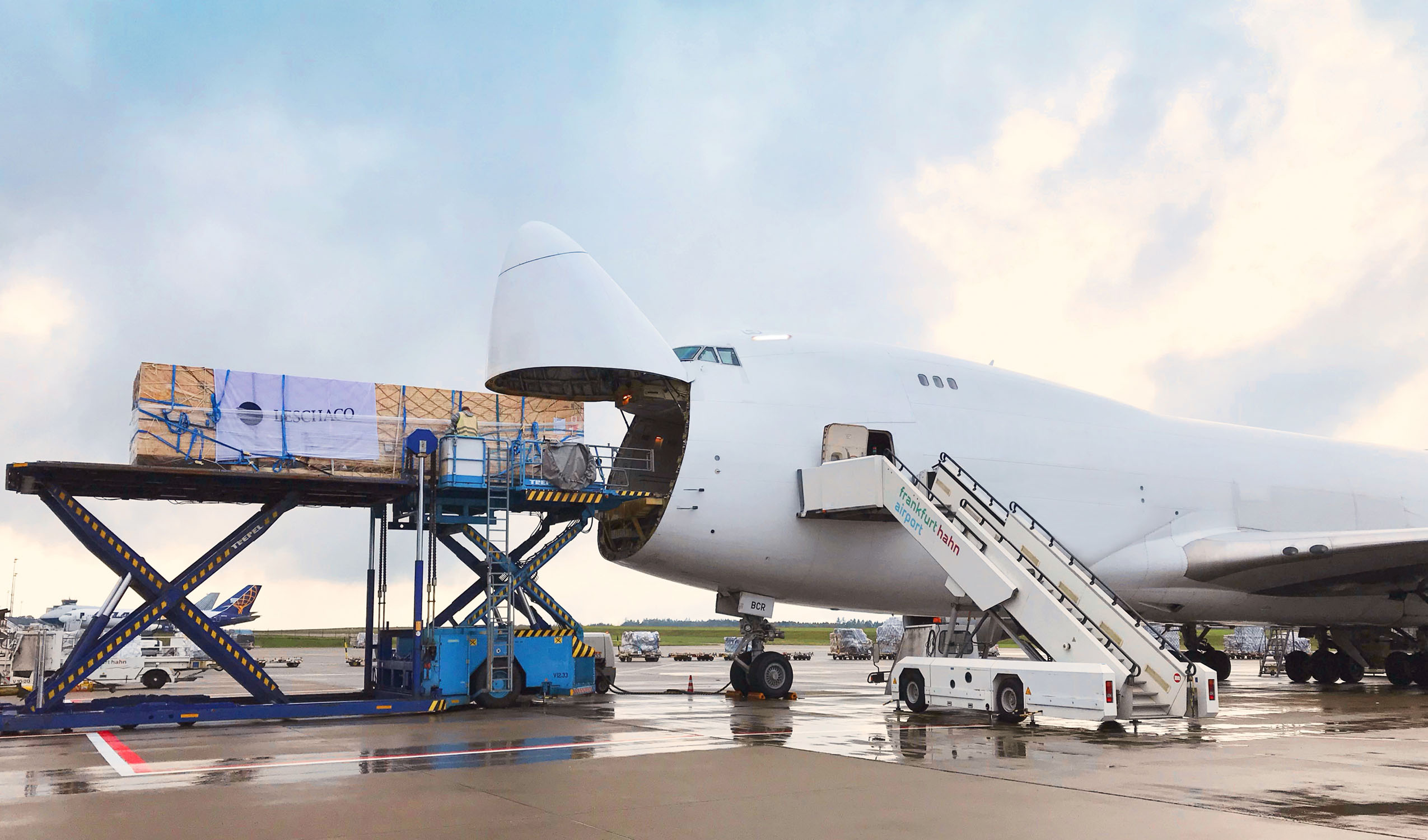Copyrights 2022/23: Lexzau, Scharbau GmbH & Co. KG, Bremen (Germany). Concept and realization vibrio | Imprint | Privacy | Cookie Settings


It is easy to be tempted to avoid the dangers by avoiding them. But those who avoid the danger are more likely to perish in it. This realization is ultimately at the core of dangerous materials logistics. Because the safe transport of dangerous goods helps to avoid risks. Most recently, the COVID-19 pandemic showed us all how important the transport of medications, medical oxygen, viral samples, clinical equipment or nuclear medicine equipment is today. No safe healthcare without dangerous materials logistics.
Worldwide, sales in the chemical industry, even excluding pharmaceutical production, have grown by an average of around three percent annually in recent years. And in the long term – I am convinced of this – this trend will continue. We urgently need further progress in materials science, in battery management, in the circular economy. None of this exists without an innovative chemical industry. From modern 3D printing in manufacturing to alternative drives – nothing works without chemistry.
Nevertheless, in the current energy and gas crisis, we see that the chemical industry is an energy-intensive sector. If you want to save energy in the long term, you first have to invest in – alternative – energies.
Today, the chemical industry worldwide is suffering from rising energy prices; but also from growing challenges in the logistics chains. The COVID-19 pandemic and the war in Ukraine have led to major problems for one of our most important industries. In this context, the transport of chemical goods is becoming increasingly important.
The market for the safe transport of chemical goods is growing even faster than the chemical industry itself. Reliable figures are available for the dangerous goods logistics sector, with global sales of around US$205 billion in 2021. For the next five years, experts assumed annual growth rates of five percent before the start of the Ukraine war (source: Marketresearchfuture).
Dangerous goods logistics is a matter of trust, because risks always arise when transporting dangerous goods. Although the number of total losses in maritime shipping, for example, has fallen significantly over the past ten years – despite the fact that more and more ships are sailing the world’s oceans – safety-related incidents, such as container fires, are becoming more frequent. For sensitive cargoes that need to be transported and discharged quickly and safely, the risks increase. Reliability in packing, loading, transportation and unloading by well-trained professionals is absolutely crucial.
For the safe transport of dangerous goods, many companies need to work together. Leschaco has a central role to play in this. As a global logistics company, we not only offer suitable ISO tank containers for transport by sea, air and road, but also the associated forwarding services.
Leschaco also offers worldwide dangerous goods consulting and training as well as LCL services for products of the chemical industry as well.
Being globally active on water, air and land, we are familiar with the many international and regional regulations relevant to the safe transport of dangerous goods; from the “International Convention for the Safety of Life at Sea (SOLAS)” to the “Dangerous Goods Regulations (DGR)”, IATA to the “Multilateral Agreement M306 on the carriage of lithium cells and batteries from production series of 100 cells and batteries or less” and similar national regulations.
Today, all this requires not only careful quality management and many years of experience, but also the use of state-of-the-art technologies. Sophisticated IT tools are used to control and monitor transport status, warehousing and other sub-processes.
That’s why dangerous goods logistics relies on digitization. The digitization of the entire economy is an enormous challenge for logistics. At Leschaco, we took up this challenge early on and developed numerous digital service solutions for our customers, ranging from tracking and tracing systems to complete supply chain control. We actively support our customers on their way into the age of digitalization. As Chief Digital Officer, I have focused significantly on these tasks at the Leschaco Group over the past few years.
On this basis, we create customized solutions for the entire supply chain from a single source. Customers from the chemical and chemical-related industries receive personal contact persons at Leschaco. This enables short distances and maximum safety in all process steps.
With the new dangerous goods logistics blog that we are launching today, our corporate communications are right at the intersection of trust and digitalization. In the future, we want to give our customers, partners and the public an impression of our work, the trends and the challenges in dangerous goods logistics: with authentic contributions from our employees from their everyday lives and with exciting guest contributions from external experts. And as is customary in a dialog-oriented digital team and topic blog, you have the opportunity to engage directly with the authors. Because at Leschaco, we value transparent communication.
I hope you enjoy the reading and discussion. And I am already curious about your suggestions, your criticism and your opinion. Write to me or the editor. You can reach us by email at blogteam@leschaco.com.
The Leschaco Group is a global logistics service provider that combines Hanseatic tradition with cosmopolitanism and a spirit of innovation. “Experienced. Dedicated. Customized.” This is a fitting summary of the company’s philosophy: On the basis of decade-long experience teams of specialists set up customized solutions
› Sea Freight
› Air Freight
› Tank Container
› Contract Logistics
› Supply Chain Solutions
› Intermodal Transports
› Industrial Solutions
› Services
Lexzau, Scharbau GmbH & Co. KG
Kap-Horn-Straße 18
28237 Bremen
Deutschland
phone (49) 421.6101 0
fax (49) 421.6101 489
info@leschaco.com
Copyrights 2022/23: Lexzau, Scharbau GmbH & Co. KG, Bremen (Germany). Concept and realization vibrio | Imprint | Privacy | Cookie Settings